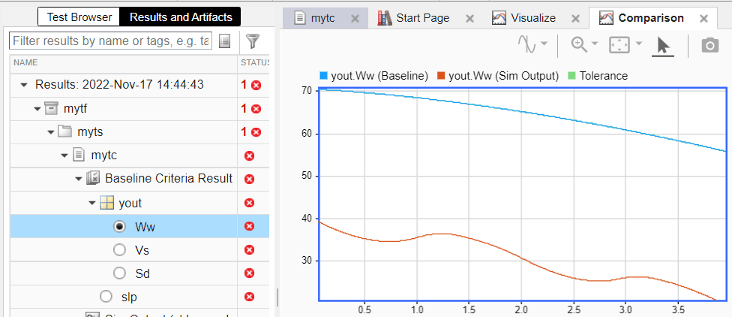sltest.testmanager.OutputTriggerResult 类
命名空间: sltest.testmanager
描述
sltest.testmanager.OutputTriggerResult 对象包含来自 sltest.testmanager.TestIterationResult 对象中的迭代结果的信号记录输出触发结果。如果测试用例没有迭代,则触发结果来自 sltest.testmanager.TestCaseResult 对象中的测试用例结果。
sltest.testmanager.OutputTriggerResult 类是一个 handle 类。
创建对象
otr = sltest.testmanager.TestIterationResult.getOutputTriggerResults(tir) 为测试迭代结果对象 tir 创建输出触发结果对象。
otr = sltest.testmanager.TestIterationResult.getOutputTriggerResults(tcr) 为测试用例结果对象 tcr 创建输出触发结果。仅当测试用例没有迭代时才使用此语法。
属性
示例
版本历史记录
在 R2023a 中推出

